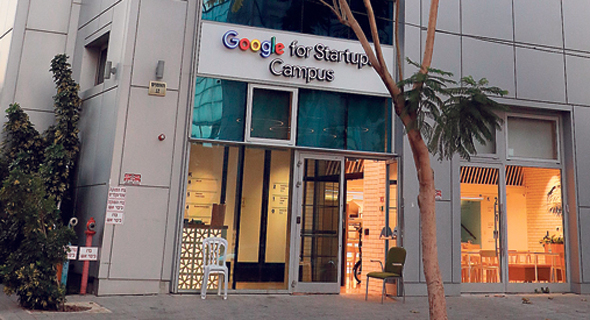Google’s Israel-Developed New Feature Reads Out Entire Webpages
The new Google app, developed in Israel, can read long texts from websites and apps using a human-like voice
12:4505.03.20
On Wednesday, Google launched its latest feature, Read It, which is capable of voicing long texts from websites and apps using a human-like speech technology. While Google does not typically note where new applications and capabilities are developed, the company made an exception this time, announcing the technology behind Read It was developed in Israel.
 Google offices in Tel Aviv. Photo: Dana Koppel
The project was implemented under Google's 20% of the time policy that encourages employees to invest one-fifth of their workweek to personal projects, Matias said. Many of the company's ventures were born from such projects, he said.
Google offices in Tel Aviv. Photo: Dana Koppel
The project was implemented under Google's 20% of the time policy that encourages employees to invest one-fifth of their workweek to personal projects, Matias said. Many of the company's ventures were born from such projects, he said.
The idea for the new feature was led by Google’s vice president of engineering and the managing director of Google's research and development center in Israel, Yossi Matias. The project was headed by Rony Amira, who led the development team, and David Kadouch, who leads the research and machine intelligence group at Google’s Tel Aviv offices.
 Google offices in Tel Aviv. Photo: Dana Koppel
Google offices in Tel Aviv. Photo: Dana Koppel “This initiative is part of our attempt to harness new technologies for the benefit of society,” Matias said in a Tuesday interview with Calcalist. “We are trying to find ways to solve problems for people with disabilities or differing needs. All of this stands within Google's goal to make information accessible to everyone in a simple and effective way," he said.
Matias said he came up with the idea for Read It during a morning run, which he spent listening to the biographies of Albert Einstein and Steve Jobs. “I wanted to find a way that would allow me to read materials that exist on my smartphone for an extended period of time,” he said. “The existing reading apps, with their robotic voice, did not suffice.”
Related stories:
- Google Cannot Track Down the Dress You Fell in Love With on Instagram, Says Syte Founder
- CTalk: Public Policy Manager at Google Explains Company’s Interest in Israeli Industry
- Tel Aviv Among Most Trending Destinations For 2020, According to Google
The new feature has some finetuning left, David Kadouch told Calcalist. For example, it can only read out loud texts that are in the form of an article, so it does not yet recognize content such as sporting event results, and it does not yet know how to read out loud in Hebrew, but it can read in 42 languages, he explained.



